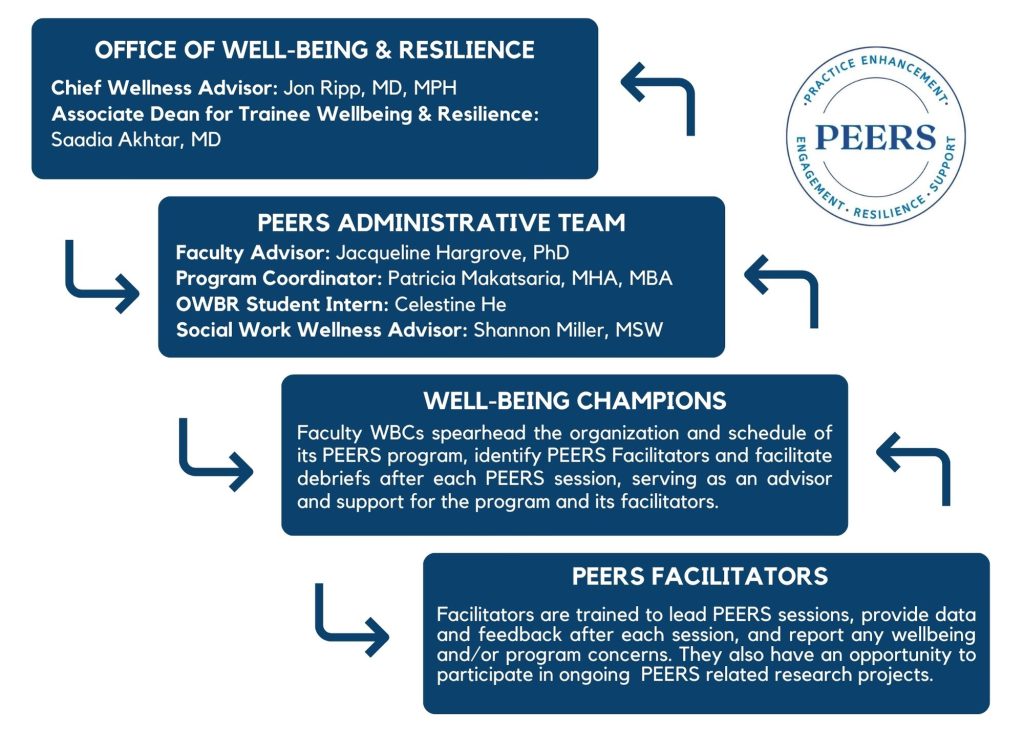Overview of Program
The Graduate Medical Education (GME) PEERS program consists of a 12 session core curriculum, with an additional orientation session provided by the PEERS Faculty Advisor for any new program considering or recently integrating PEERS into their well-being offerings. Through structured sessions informed by positive psychology, mindfulness, and cognitive-behavioral techniques, the curriculum addresses specific challenges that arise in medical training. The PEERS program equips trainees with a space to build community, learn relevant skills to face adversity, and develop sustainable ways to support their well-being during their training years and beyond. In addition, interested trainees can elect to become trained PEERS Facilitators. Under the supervision and mentorship of the PEERS administrative team and faculty Well-Being Champions, resident and fellow PEERS Facilitators receive specialized training in group facilitation and evidence-based well-being practices, plan and facilitate PEERS sessions, serve as advocates of positive psychology, and help ensure the longevity and sustainability of PEERS within their program. This role is flexible and ideal for any residents or fellow with an interest in pursuing leadership roles in medical education or well-being promotion.
Organizational Structure

GME PEERS Core Curriculum
The following topics comprise the PEERS Core Curriculum. Each session is approximately 60-minutes in length. Session frequency depends on program need and capacity—ranging from monthly to quarterly sessions—and require PEERS Facilitators spend an additional hour to prepare for and debrief after each PEERS session. In addition to these core sessions, PEERS Facilitators may work with the PEERS administrative team and the Office of Well-Being and Resilience (OWBR) to develop new sessions and customizable versions of the curriculum once PEERS is underway to meet the unique needs of their programs.
1. Intro to PEERS/Orientation for New Programs
2. Maintain Self: Living by Our Values
3. Self-Compassion: Turning Empathy Inward
4. The ABCs of CBT: Examining Our Thoughts and Beliefs
5. Active Constructive Responding: Capitalizing on Moments of Connection
6. Gratitude: Appreciating the Good
7. Savoring: Deepening Our Sense of Joy
8. Signature Strengths: Leveraging the Best of Us
9. Fail Forward: Embracing Imperfection
10. Dialectical Thinking: Appreciating Ambivalence
11. Self-Authorship: Owning Our Narratives
12. History of Present Wellness: Assessing Our Current State of Well-Being
13. Empathy 101: Connecting with Care (Empathy vs. Sympathy)
14. Managing Your Energy: Assessing Your State of Vitality
